CIVIL WAR (2024)
A journey across a dystopian future America, following a team of military-embedded journalists as they race against time to reach DC before rebel factions descend upon the White House.
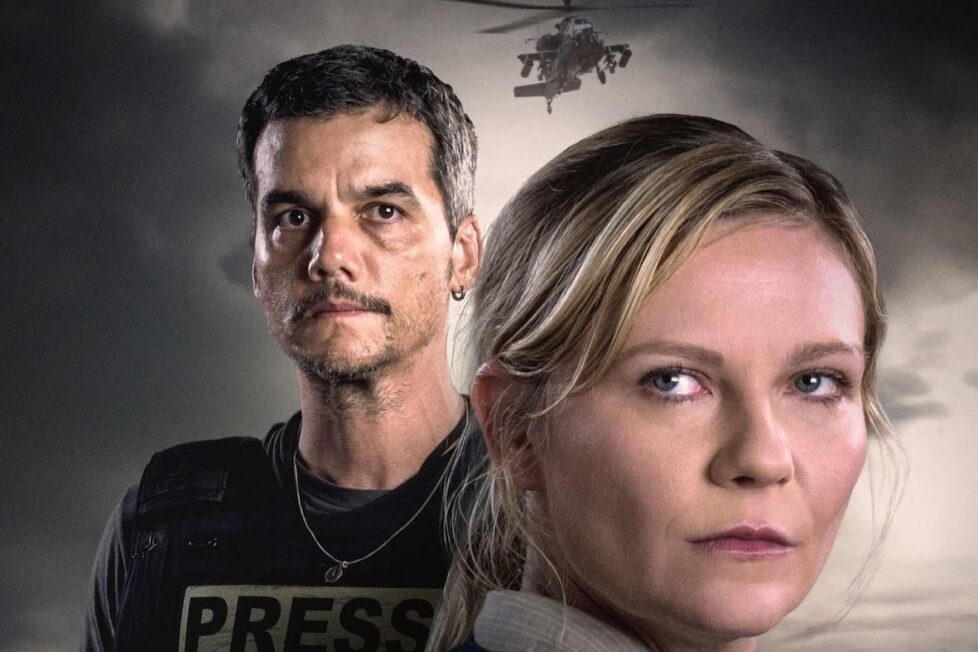
A journey across a dystopian future America, following a team of military-embedded journalists as they race against time to reach DC before rebel factions descend upon the White House.


In the distant, unspecified future, the United States of America has descended into chaos. Texas and California, setting aside their political differences, have formed the Western Forces to fight back against a fascist government that has forced the President (Nick Offerman) into hiding within the White House. On the front lines of this second American Civil War are journalists, risking their lives to capture the horror and reality of the situation. Civil War is a visceral journey alongside said journalists, a true ode to their work and a horrifying depiction of the toll of violence.
Acclaimed director Alex Garland, of recent science-fiction films Ex Machina (2015) and Annihilation (2018), and most recently the psychological horror Men (2022), wrote and directed this film. It follows a team of journalists—Lee (Kirsten Dunst) and Joel (Wagner Moura) from Reuters, ageing New York Times writer Sammy (Stephen McKinley Henderson), and 23-year-old aspiring war photojournalist Jessie (Cailee Spaeny)—as they travel 800 miles from New York City to Washington D.C. to interview the President before Western Forces breach the White House.
Civil War doesn’t begin at the outbreak of rebellion in the US. Instead, it throws us into a war-torn country on the verge of collapse at the war’s end. The reason for the secession from the Western Forces, who bear a two-starred American flag, is unclear. However, Garland does well to scatter clues throughout dialogue and setting to show just how bad things became for the rebellion to spread across the nation. Inflation has driven the price of sandwiches to $300, while power cuts occur daily. The National Guard failed to maintain order, turning the country into an unrecognisable shell of its former self, ruled by violence.
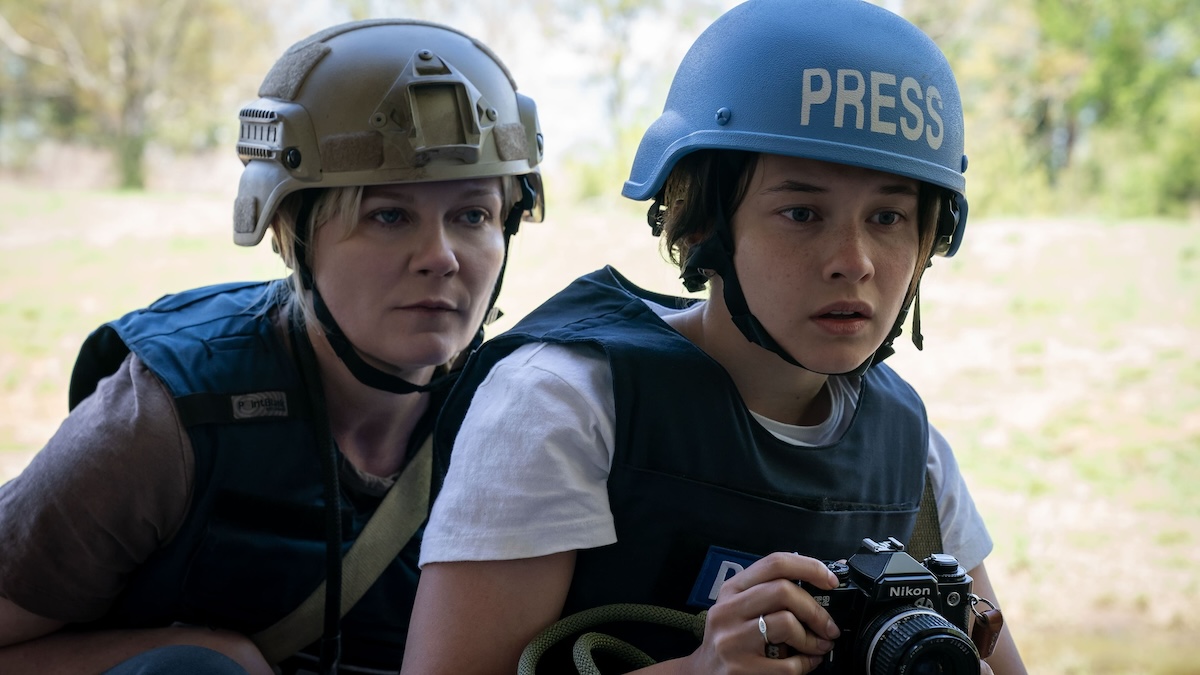
One of the most striking elements of Civil War is the cinematography. Its grounded action and war set pieces are very reminiscent of Alfonso Cuarón’s Children of Men (2006) and Neill Blomkamp’s District 9 (2009), placing viewers on the street in the middle of the action. It allows us to breathe in the vastness of the war, but gives us intimacy with the journalists on the front lines documenting it. Even when the bombs aren’t flying or the woods burning down, Garland does well to shed light on the humanity of every moment. One of the film’s most powerful moments is a shot of a lone sprinkler on a suburban lawn in a town untouched by violence. Its unspoken existence shows the life that is missing from this world, the abundance no longer allowed in a war-torn America.
Much like Garland’s earlier works, Civil War is at its best when it foregrounds character over plot. Kirsten Dunst is phenomenal as the film’s central protagonist, Lee, a war photojournalist who rose to fame documenting the “antifa massacre”. Years of documenting war abroad and at home have left her cynical and hardened. There’s little she hasn’t seen in the world that could shock or scare her. Dunst’s performance is one of her best in her extensive body of work.
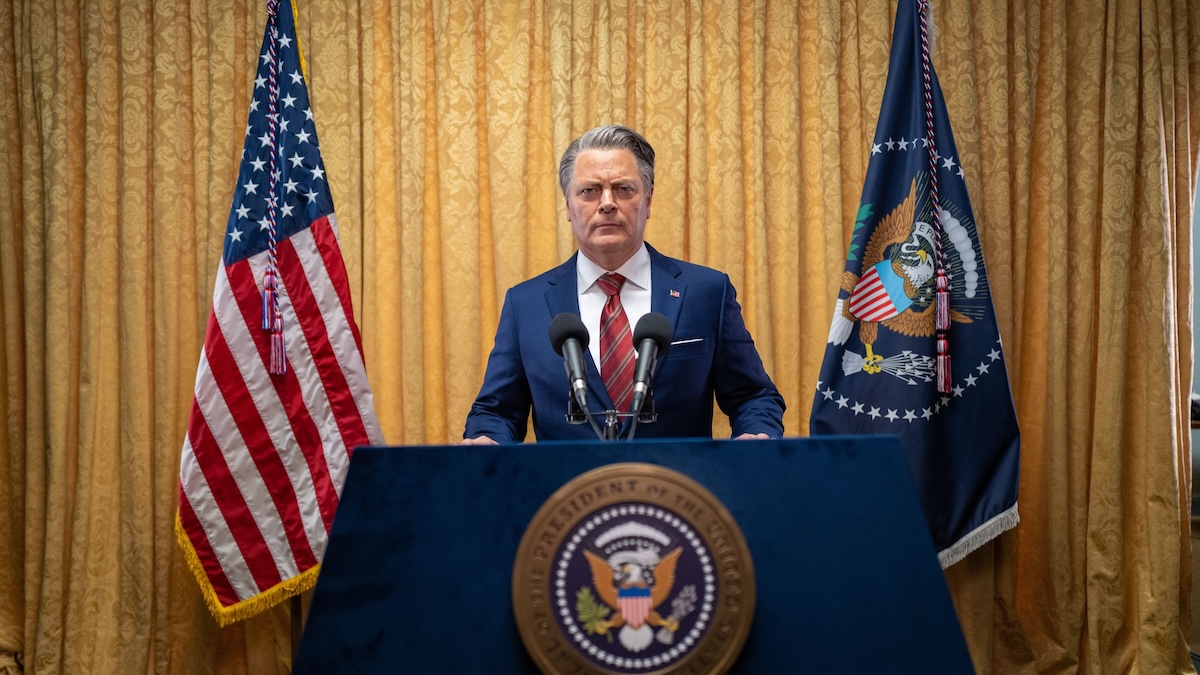
Supporting Lee on their journey through rural Pennsylvania and the Virginias is an eclectic group of journalists, spanning a wide age range yet united by the task at hand. Cailee Spaeny notches up another hit after the success of Priscilla (2023). She plays the opportunistic Jessie, armed with a dream and her father’s film camera, excited to be heading to the conflict’s front lines, but blissfully unaware of what that entails. Joel, played with real depth by Wagner Moura, is an extroverted war junkie, unfazed by violence and with a singular goal in mind. And Stephen McKinley Henderson brings humanity to Sammy, a warm-hearted writer who can’t even walk without his cane, yet is drawn to the front lines because his career is his lifeblood. The civil war brings out the best and worst in them all.
Jessie and Lee are at the heart of the film’s central relationship. Jessie first encounters her hero, Lee, when she’s inadvertently punched while documenting a clash between desperate New Yorkers and the New York Police Department. Jessie aspires to be just like Lee and learn everything about becoming a war journalist. Lee, however, is hesitant, her past shaping every instinct to shield Jessie from such a future. It’s through their contrasting eyes, one green and the other battle-hardened, that Garland’s central themes are brought to light in the most horrific ways.
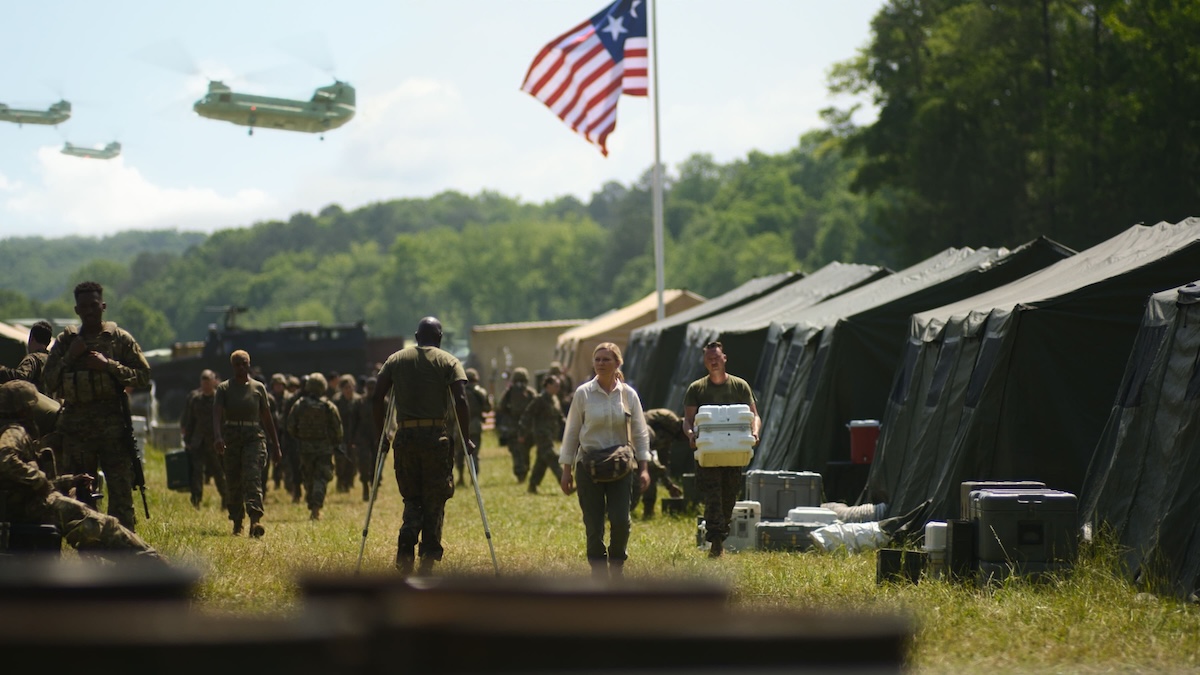
The film isn’t all death and dismay. Garland strategically places moments of levity throughout the film to remind us there’s life outside the war. Children playing games in a refugee camp set up in an American football stadium. Journalists sharing stories in their Manhattan hotel bars. Laughter shared over a bottle of vodka. But then the film yanks us right back into the conflict before we get too comfortable. No scene does more to ground this juxtaposition than when they’re found by a group of soldiers, led by a quietly menacing soldier played by Jesse Plemons (Game Night). His apathetic disregard for humanity makes us hold our breath. And Garland deliberately makes it vague which side these soldiers fight for. In Civil War, he wants to highlight that there are no clear sides.
War is an ever-present constant in our world. Garland, who’s English, brings war to US soil, not to alienate viewers across the world but to hone in on the impact of a war in a recognisable country. He’s constantly reminding us of the dissonance of a civil war on American soil. Discarded Christmas decorations make the perfect cover from sniper fire. A downed helicopter sits in a JC Penny parking lot. And the film’s folk and classic rock playlist grounds American cultural sound with images of army barracks in Charleston, Virginia. For viewers who are able to turn off the TV and social media in the real world, Civil War is the movie designed to make us uncomfortable. The film begins with discordant noises to set the stage for 109 minutes of comfortless viewing.
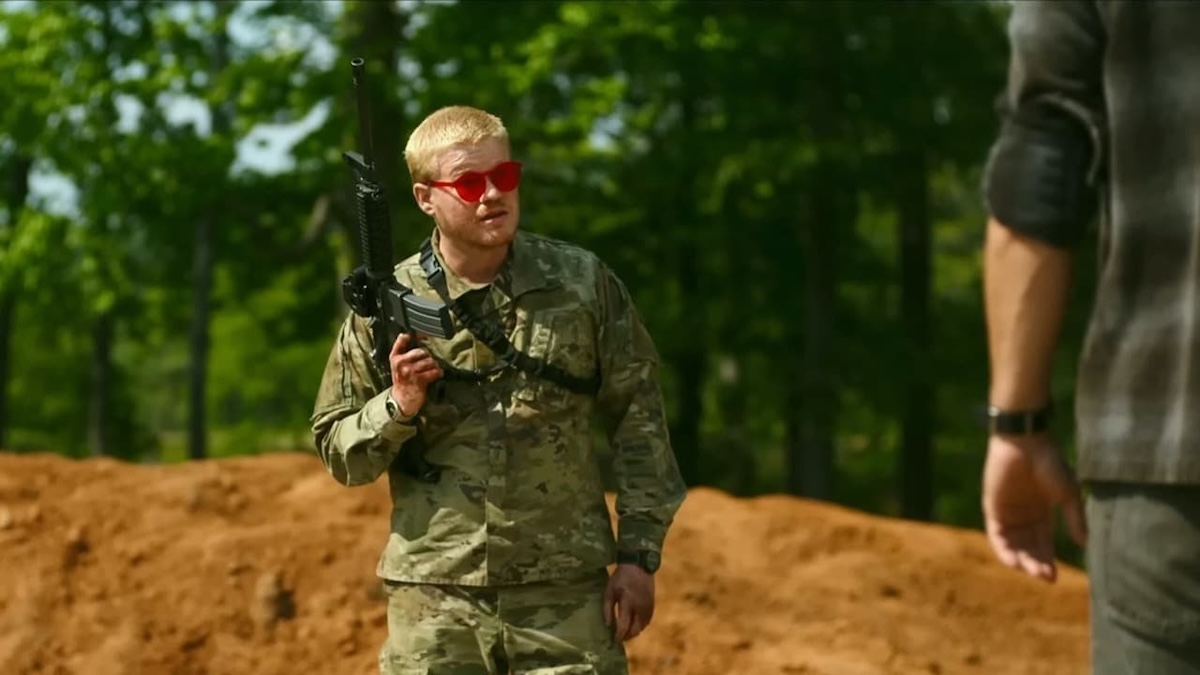
The film’s overt impartiality towards the conflict allows viewers to see the war through the eyes of its journalists, who adhere to journalistic neutrality. Even Garland himself positions himself in the centre of the conflict, politically, not taking sides. “Over the last four years and in making the film, what I’ve realised is that what I really am is a centrist,” Garland told Yahoo. However, the film undermines itself by suggesting at many turns the journalists’ bias towards the Western Forces. The film is built on its anti-war message, trying to distance itself from glorifying violence. And the horror of war is ever-present and continues to be shocking until the film’s final frame. But, by the end, the journalists and the film have seemingly chosen a side, even if Garland desires to remain impartial.
Still, Civil War is a harrowing film, with visually stunning and breathtaking action sequences, and the textbook psychological horror that Garland has done so well in his previous works. While its themes don’t do much to break new ground, its focus on the lengths journalists go to to get the right story is a fresh perspective that makes for a compelling journey.
USA UK | 2024 | 109 MINUTES | 1.85:1 | COLOUR | ENGLISH

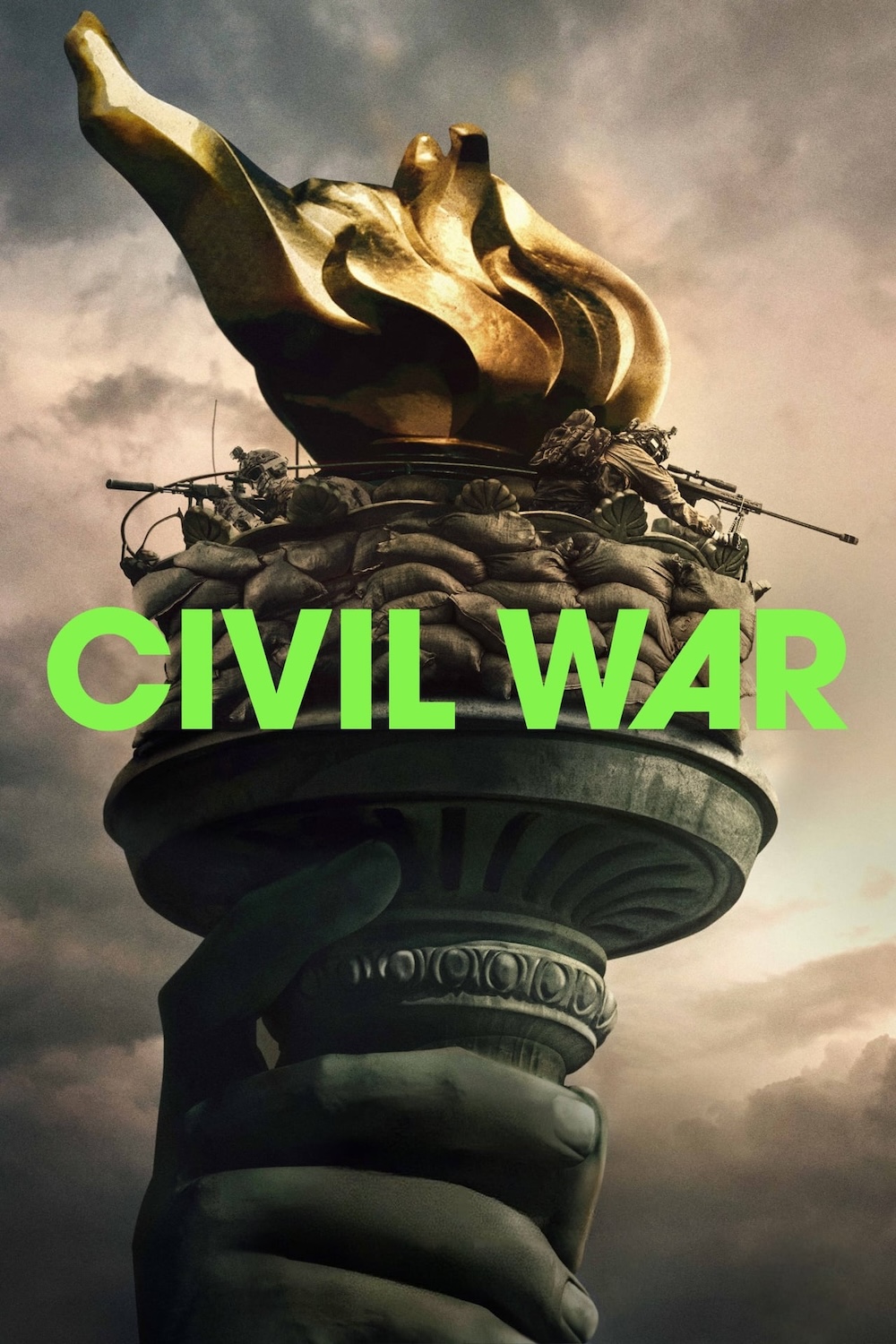
writer & director: Alex Garland.
starring: Kristen Dunst, Wagner Moura, Cailee Spaeny, Stephen McKinley Henderson, Sonoya Mizuno, Nick Offerman & Jesse Plemons.
